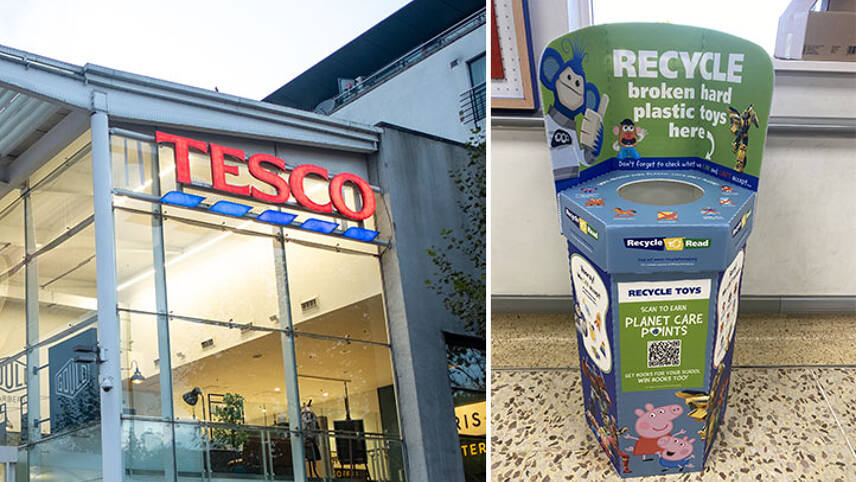Register for free and continue reading
Join our growing army of changemakers and get unlimited access to our premium content

The firms will, in the first instance, encourage families to rehome toys by giving them to friends, families, local charities or schools in need. Hasbro’s reasoning is that memories can be kept even if toys are given away or recycled.
Toys not rehomed or donated will then be accepted in take-back bins at Tesco supermarkets across Sussex. Toys from all brands an in all conditions will be accepted.
Broken toys will be processed by Wastebuster, which will oversee collection, cleaning and processing. The processing involves separating parts, melting the plastic and forming new pellets that can be used in new rigid plastic products.
Families can log their recycling and rehoming efforts on the Wastebuster site. In exchange for their work, they can earn points for their school. The 50 highest-scoring schools in the area will be awarded with vouchers to spend on books from participating publishing houses.
With this in mind, the initiative is called ‘Recycle to Read’. Should the initiative prove popular, Tesco will explore ways to bring the toy take-back bins to more stores in regions beyond Sussex.
Tesco’s category director for toys, Ally Rose, said: “We are always looking for new ways to remove, reduce, reuse and recycle plastic in our business, so we’re delighted to be able to support the Recycle to Read campaign as a way to help our customers do more of this at home. As well as trialling a new way we can work together on hard-to-recycle plastics, it also helps to give children greater access to reading”.
The recycling rate for toys is estimated to be lower than 20%. Given that toys and their packaging are often made using plastics that are hard-to-recycle, they have been the target of several environmental campaigns in recent years, including initiatives that resulted in McDonald’s and Burger King ending plastic toy distribution in the UK and other markets.
Remove, reduce, reuse, recycle
Back in August 2019, Tesco updated its plastics packaging strategy, outlining a framework based on the ‘4 Rs’ – removal, reduction, reuse and recycling. Soon after that, it began the process of assessing all of its plastic packaging formats and changing them in line with this hierarchy; removal should be the first port of call.
In 2021, Tesco removed 500 million pieces of plastic packaging from its own-brand lines. That brought the total number of plastic packaging pieces removed to date to 1.5 billion after one billion pieces were removed during 2019 and 2020.
On the recycling side of things, Tesco now hosts soft plastic recycling points at all large stores in the UK. It also has partnerships for take-back schemes covering cosmetics packaging, batteries and medicine packaging.


Please login or Register to leave a comment.